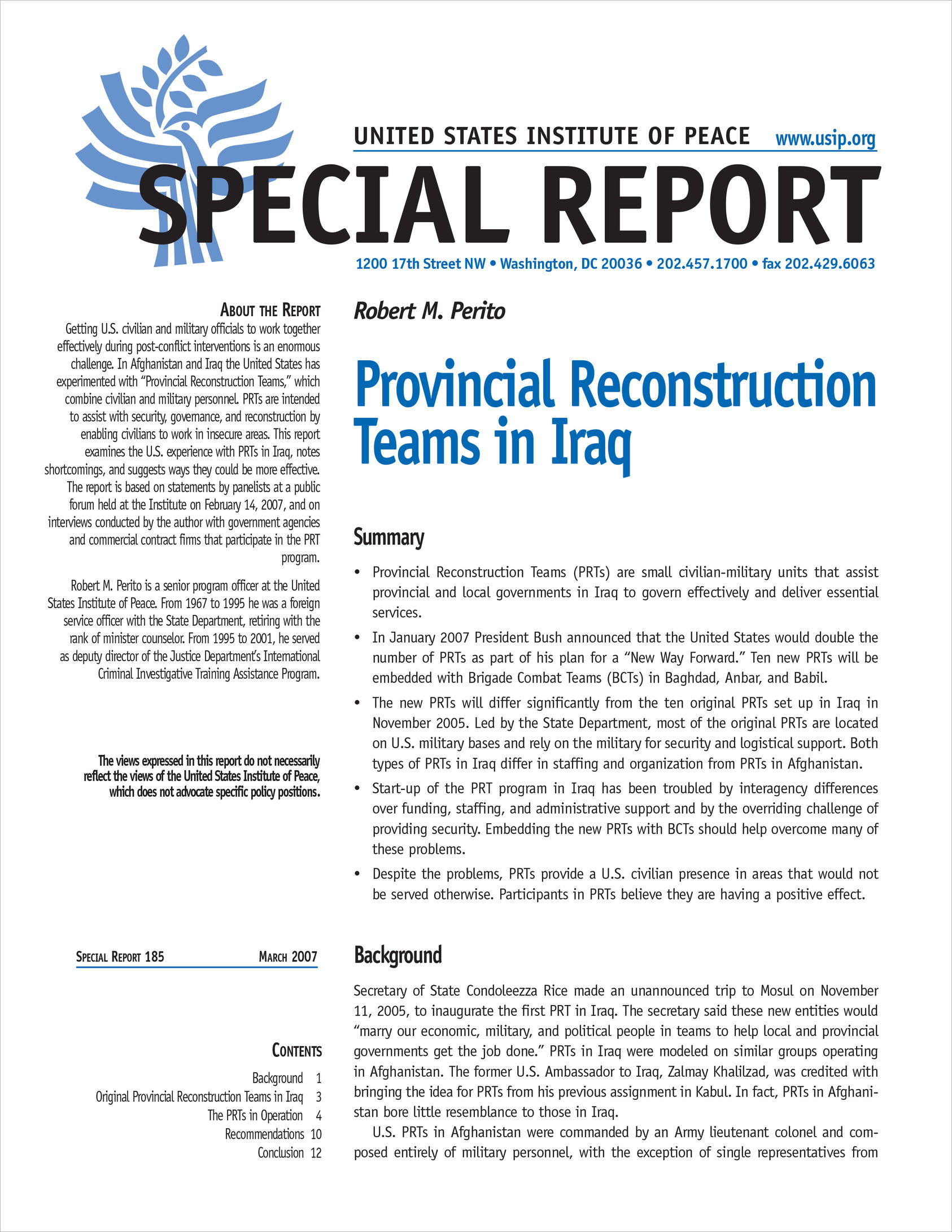In January 2007, President Bush announced that the United States would double the number of Provincial Reconstruction Teams (PRTs), small civilian-military units that assist provincial and local governments to govern effectively and deliver essential services, as part of his plan for a "New Way Forward" in Iraq. This report examines the U.S. experience with PRTs in Iraq, notes shortcomings, and suggests ways they could be more effective.

Summary
- Provincial Reconstruction Teams (PRTs) are small civilian-military units that assist provincial and local governments in Iraq to govern effectively and deliver essential services.
- In January 2007 President Bush announced that the United States would double the number of PRTs as part of his plan for a "New Way Forward." Ten new PRTs will be embedded with Brigade Combat Teams (BCTs) in Baghdad, Anbar, and Babil.
- The new PRTs will differ significantly from the ten original PRTs set up in Iraq in November 2005. Led by the State Department, most of the original PRTs are located on U.S. military bases and rely on the military for security and logistical support. Both types of PRTs in Iraq differ in staffing and organization from PRTs in Afghanistan.
- Start-up of the PRT program in Iraq has been troubled by interagency differences over funding, staffing, and administrative support and by the overriding challenge of providing security. Embedding the new PRTs with BCTs should help overcome many of these problems.
- Despite the problems, PRTs provide a U.S. civilian presence in areas that would not be served otherwise. Participants in PRTs believe they are having a positive effect.
About the Report

Members of a provincial reconstruction team in Afghanistan unload boxes of humanitarian assistance and supplies. (Photo Courtesy Third Army/United States Army Central/Coalition Forces Land Component Command)
Getting U.S. civilian and military officials to work together effectively during post-conflict interventions is an enormous challenge. In Afghanistan and Iraq the United States has experimented with "Provincial Reconstruction Teams," which combine civilian and military personnel. PRTs are intended to assist with security, governance, and reconstruction by enabling civilians to work in insecure areas. This report examines the U.S. experience with PRTs in Iraq, notes shortcomings, and suggests ways they could be more effective. The report is based on statements by panelists at a public forum held at the Institute on February 14, 2007, and on interviews conducted by the author with government agencies and commercial contract firms that participate in the PRT program.
Robert M. Perito is a senior program officer at the United States Institute of Peace. From 1967 to 1995 he was a foreign service officer with the State Department, retiring with the rank of minister counselor. From 1995 to 2001, he served as deputy director of the Justice Department's International Criminal Investigative Training Assistance Program.